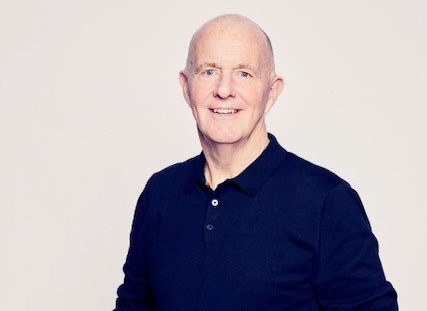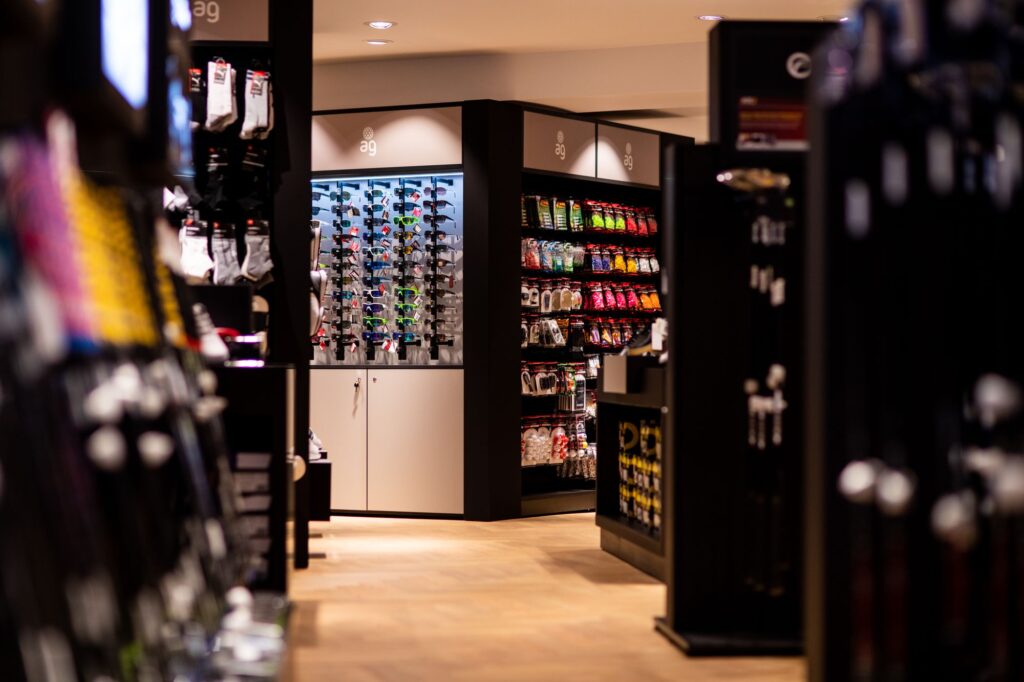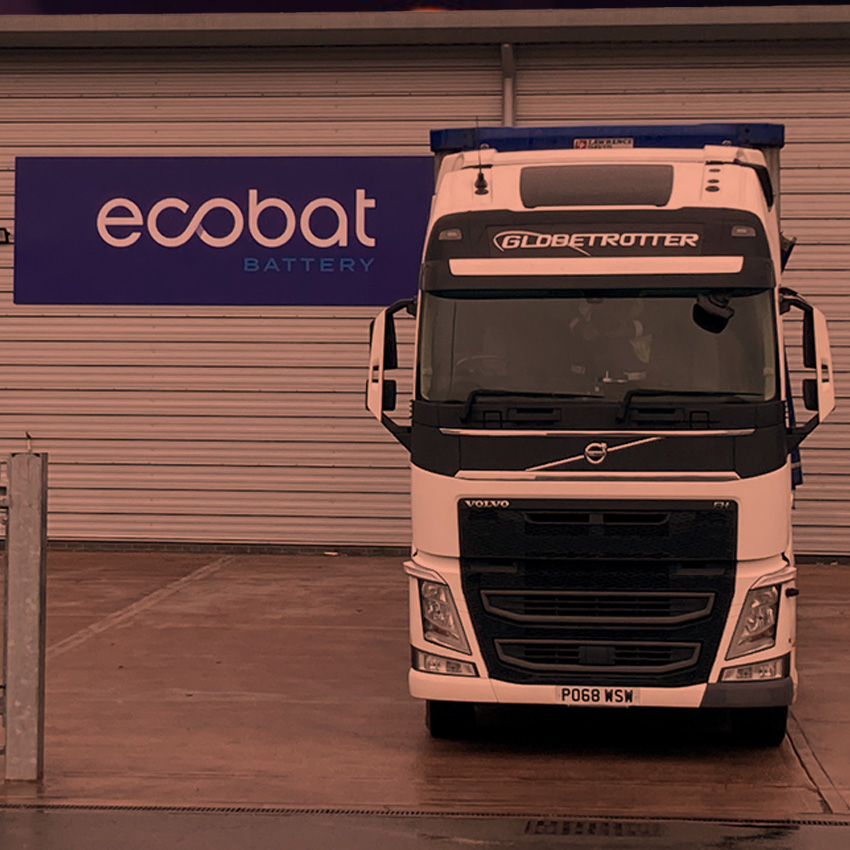July 6, 2023
Q&A with Nigel Oddy, CEO of American Golf

Tell us about your background and what led you to working in the retail sector?
My whole career has been spent in retail. My parents wanted me to go to University, but to be honest I wasn’t academic, and I hated studying. They agreed that if I got a ‘good job’ with prospects, I could ‘avoid’ university. So, I made it my mission to do just that, and managed to be one of the few people to apply for, and succeed in, being accepted on to the M&S ‘young management training scheme’. I started on the shop floor in Warrington and quickly progressed through the ranks. My career initially covered store management, including a spell as GM of M&S flagship store, Marble Arch. However, I then moved into buying & merchandising where I progressed to Executive, and I also had a spell out in Hong Kong setting up the sourcing office and directory, as well as running the M&S Far East retail business.
After 20+ years I decided it was time for a change to broaden my career, and after a couple of Senior Management appointments at furniture retailers, I moved to House of Fraser where my ‘C suite career started. 10 years there as COO and CEO, which included refinancing and selling the business, and I then moved to The Range to help the owner plan for and execute an IPO. However, for several reasons this didn’t materialise, and after 2 years I left to join New Look as CEO where I took the business through Covid, 2 refinances, and a CVA. Last year I left New Look as I entered the middle of my 4th year at the helm, and I accepted a 6-month interim CEO role at Matalan where I completed the re-capitalisation of the business. This interim role finished on March 31st this year, and on April 6th I commenced my latest role as CEO, American Golf.
I can’t say there is one bit of my career that I haven’t enjoyed, and I continue to learn something new every day, even after 40+ years in the retail industry.
UK businesses have had to deal with a significant amount of volatility in the past few years. Do you think this level of volatility and uncertainty is the ‘new normal’ and if so, what are the implications for UK retailers?
I was reading only last week that since 2010 volatility in the retail industry has increased 250%. Clearly some industries and businesses have fared better, and others worse. However, in retail, this level of volatility has been very challenging to say the least, and many of the causes (Covid & Brexit) have been unprecedented, resulting in Senior Management having to learn, react and adapt as they went along. But volatility isn’t new to retail- we have experienced it over the years caused by financial crises, VAT increases, National strikes etc. I think the difference is that over the past few years everything has been condensed into a much tighter timescale and it has been international, if not global.
I have no doubt we will see further volatility in the years to come caused through conflict, pandemic, or financial crises. As business leaders we need to be more agile than we have ever been and to be ready to respond more quickly to such volatility. UK retailers are dependant on so many other countries for goods, manufacturing, and labour today, and therefore it is not just national issue that we must understand, but the potential risks of operating and trading around the world, and we need to work with our teams to mitigate these risks as best we can.

What has been your biggest learning over the past year?
Despite my past year being in 2 completely different sectors, value fashion and most recently golf, the past 12 months has reminded me once again of the need to maintain a razor-sharp focus on the key factors that help any business to survive. Very little is new in retail, but keeping a tight handle on the tiller is key and keeping the team focussed on the basics is essential. My biggest learnings continue to be:
- Challenge the norm to see what can be done more efficiently and effectively, even when colleagues around you say it can’t be done.
- Don’t always do what has always been done
- Cash is king, run the business within its means, and keep costs as tight as you can.
- Never accept the business can’t go further, adapt, and continue to grow.
- Listen to others’ views, always be prepared to learn, and utilise the ‘experts’ you have around you.
How is the ‘cost of living crisis’ affecting the golf retail sector in particular, and how have you as a business responded?
Golf has gone through an ‘interesting’ period since Covid. When the country re-opened ‘post-pandemic’, the golf industry exploded and had a very strong year. Golf players, from the casual to the advanced, were glad to get out playing again, and they invested in new clubs, equipment, and apparel. It then levelled off, and as we moved in to the ‘cost of living crisis’, there was a reduction in the regularity of spend and the number of items per basket. However, so far this year we have seen players once again updating clubs, bags and trollies, albeit not spending quite so much as they previously did.
The sector has not been hit by a reduction of discretionary spend like many other sectors, but nobody can rest on their laurels as the market is tough, and the competition is aggressive. We have focussed on our USPs – a loyal customer base, our reach across he U.K. with our stores and online offer, offering good, better and best goods through our owned and 3rd Party Brands, and driving great service that makes our customers feel like a VIP irrespective of how much they have to spend, or how good they are at golf.

Looking ahead, what trend do you see shaping the retail industry?
Volatility doesn’t mean the end for retail. One person’s loss is another person’s gain, and a changing marketplace can spell opportunity for many retailers who are prepared to adapt. For example, volatility in clothing and footwear has been driven not just by macroeconomics but by both smaller players with a lifestyle targeted offering and an increased number of retailers presenting their offerings on tech/marketplace platforms. This trend is certainly set to continue for the foreseeable future.
I see there being fewer major retailers, and a growth in more specialist small and medium retailers, sharing and developing their own marketplaces. And for a nation of shoppers, bricks and mortar still has a place in the future, with the biggest winners having the strongest omni-channel offering. Those retailers who understand their customers, who focus solely on what they want, who listen to them, and who always put them first, will be the winners. Value will continue to be essential, but this doesn’t mean cheapest – demonstrating the value of a product to a customer is key, supported by great service.


